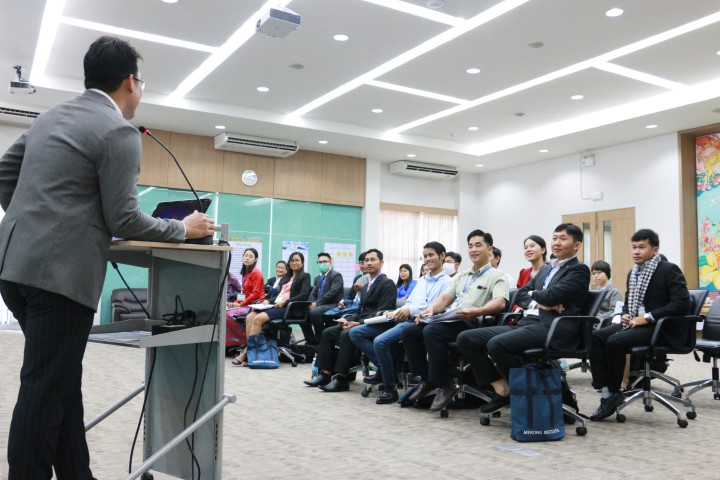“This training will optimize the quality and safety of our fruits and vegetables. Thus, increasing our competitiveness in the local, regional, and international markets.”
This was the statement of Taing Koungveng, Quality Assurance Officer from the Plant Protection, Sanitary and Phyto-sanitary Department of the General Directorate of Agriculture in Cambodia’s Ministry of Agriculture, Forestry and Fisheries. He is one of 21 participants of Mekong Institute’s (MI) Postharvest Safe Food Handling regional training from March 9 to 13, 2020 at the MI Training Center in Khon Kaen, Thailand.
Under the management of MI’s Agricultural Development and Commercialization (ADC) Department, the five-day activity will enhance capacities of representatives from government agencies, fresh produce companies, and research and academic institutions to apply critical postharvest practices in securing food safety, reducing fruit and vegetable decay, and maintaining quality of produce.
“You are the food safety champions of your country and the region,” Ms. Maria Theresa S. Medialdia, Director of MI’s ADC Department, highlighted during the opening ceremony. She enjoined participants to adapt strong postharvest management systems to meet growing food requirements, minimize losses, and boost market competitiveness.
“Our combined commitment will create a sustainable food safety culture wherein the safety and quality of products are assured,” she emphasized.
In line with global and regional standards, MI’s trainings provide coordinated and scaled-up capacity building initiatives to promote food safety perception and practices in Cambodia, Lao PDR, Myanmar and Vietnam (CLMV).
During the sessions, CLMV representatives will be exposed to innovative postharvest safe food handling processes, including the critical function of water quality and biofilm development in fortifying safe food operations.
The activity will also include knowledge exchange among participants of country-specific best practices, as well as ocular visits to the Sumsung Vegetable Community and Tops Supermarket in Khon Kaen to learn firsthand standardized procedures and requirements on food safety handling, storing, packaging, transporting, and product display.
This is the second of eight Food Safety trainings scheduled for 2020 under the PROSAFE Project: Promoting Safe Food for Everyone. Supported by the New Zealand Aid Programme, PROSAFE is a five-year initiative providing training and support services to CLMV agricultural and food safety government officials and private sector actors. The project aims to enhance their food safety knowledge and expertise, as well as assist them in preparing and implementing appropriate food safety regulations and standards for select value chains and market outlets both within and outside their respective countries.








